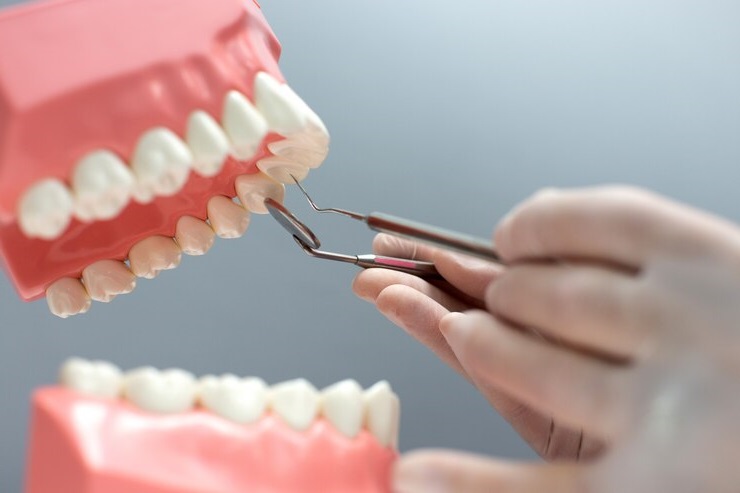
Probiotics have gained popularity for their numerous health benefits, from improving digestion to boosting the immune system. But one common question remains: Should I take probiotics in the morning or at night? Understanding the best time to take probiotics can help you maximize their benefits and ensure they work effectively in your body.
What Are Probiotics?
Probiotics are live microorganisms that provide health benefits when consumed in adequate amounts. They are commonly found in fermented foods like yogurt, kefir, and sauerkraut, as well as in dietary supplements. Probiotics help maintain a healthy balance of bacteria in the gut and other parts of the body.
Benefits of Probiotics
I take probiotics for various reasons, and they offer several health benefits, including:
- Improving Digestion: Probiotics help break down food and absorb nutrients more efficiently.
- Boosting Immune System: They enhance the body’s natural defense mechanisms against infections.
- Maintaining Gut Health: Probiotics balance the gut microbiome, reducing the risk of gastrointestinal issues.
- Enhancing Oral Health: Certain strains of probiotics can improve the health of your mouth and teeth.
Morning or Night: Which Is Better?
Deciding whether to take probiotics in the morning or at night can depend on several factors, including your lifestyle, dietary habits, and specific health goals. Here are some considerations for both times of day.
Taking Probiotics in the Morning
Many people prefer to take their probiotics in the morning. Here are some reasons why:
- Establishing a Routine: Taking probiotics in the morning can become part of your daily routine, making it easier to remember.
- Boosting Energy: Probiotics can help improve digestion and nutrient absorption, which can provide you with more energy throughout the day.
- Starting the Day Right: By taking probiotics in the morning, you start your day with a healthy habit that sets a positive tone for the rest of the day.
Taking Probiotics at Night
Others find that taking probiotics at night works better for them. Here’s why:
- Improving Sleep Quality: Some studies suggest that gut health is linked to sleep quality. Taking probiotics at night may help improve your sleep by promoting a healthy gut microbiome.
- Enhanced Absorption: At night, your body is at rest, which may allow for better absorption of the probiotics.
- Supporting Gut Health: The gut is active during the night, and taking probiotics before bed can support the natural processes that occur while you sleep.
Factors to Consider When Choosing the Time
When deciding whether to take probiotics in the morning or at night, consider the following factors:
Your Daily Routine
Think about your daily schedule and when you are most likely to remember to take your probiotics. Consistency is key to getting the most out of your probiotic supplement, so choose a time that fits seamlessly into your routine.
Meal Timing
Probiotics are often most effective when taken with food, as this can help buffer the stomach acid and ensure the bacteria survive to reach the gut. Consider your meal times and whether it’s more convenient to take your probiotics with breakfast or dinner.
Specific Health Goals
Your health goals can also influence the best time to take probiotics. For example, if you’re taking probiotics to improve digestion, taking them in the morning may be more beneficial. If you’re aiming to enhance sleep quality, taking them at night might be a better option.
How to Maximize the Benefits of Probiotics
Regardless of whether you take probiotics in the morning or at night, there are several strategies you can use to maximize their benefits. Here are some tips:
Choose the Right Probiotic
Selecting the right probiotic supplement is crucial. Look for products that contain specific strains known to benefit your health needs. For gut health, beneficial strains include Lactobacillus acidophilus, Bifidobacterium longum, and Lactobacillus rhamnosus.
Check the CFU Count
The CFU (colony-forming units) count indicates the number of live bacteria in a probiotic supplement. Higher CFU counts generally mean more potent probiotics. Look for products with at least 1 billion CFUs for the best results.
Take Probiotics with Food
Taking probiotics with a meal can help protect the bacteria from stomach acid, ensuring they reach the gut alive. This can enhance their effectiveness and help you get the most out of your supplement.
Stay Consistent
Consistency is key to getting the most out of your probiotic supplement. Make taking your probiotics a part of your daily routine, whether in the morning or at night, to maintain a steady population of beneficial bacteria in your gut.
Scientific Evidence Supporting Probiotic Timing
Research and expert opinions can provide valuable insights into the best practices for taking probiotics. Here’s what the science says about taking probiotics in the morning or at night.
Research Studies
Several studies have explored the effects of probiotic timing on their effectiveness. For example, a study published in the Journal of Clinical Gastroenterology found that taking probiotics with a meal improved their survival rate in the gut. Another study in the Journal of Clinical Sleep Medicine suggested that probiotics taken at night might improve sleep quality by promoting a healthy gut microbiome.
Expert Opinions
Experts in gastroenterology and nutrition often recommend taking probiotics with food to enhance their effectiveness. They also emphasize the importance of consistency, suggesting that the best time to take probiotics is when you’re most likely to remember to take them every day.
Potential Side Effects of Probiotics
While probiotics are generally safe for most people, there are some potential side effects to be aware of. Understanding these side effects can help you manage them effectively and ensure you’re using probiotics safely.
Common Side Effects
- Digestive Issues: Some people might experience mild digestive discomfort, such as bloating or gas, when they first start taking probiotics. These symptoms usually subside as your body adjusts.
- Allergic Reactions: Although rare, some individuals might be allergic to certain strains of probiotics. Symptoms can include itching, rash, or swelling.
- Changes in Taste: Introducing new bacteria into your mouth can sometimes alter your sense of taste. This change is usually temporary and should resolve as your body adjusts to the probiotics.
Managing Side Effects
If you experience any side effects from taking probiotics, there are steps you can take to manage them effectively:
- Start Slowly: If you’re new to probiotics, start with a lower dose and gradually increase it. This can help your body adjust without causing too much discomfort.
- Stay Hydrated: Drinking plenty of water can help alleviate digestive issues and keep your mouth feeling fresh.
- Monitor Your Symptoms: Keep track of any side effects you experience and discuss them with your healthcare provider if they persist or worsen.
Who Should Avoid Probiotics
While probiotics are generally safe for most people, there are certain groups who should avoid using them without consulting a healthcare provider. These include:
Pregnant and Breastfeeding Women
The safety of probiotics for pregnant and breastfeeding women is not well-established. It’s important to discuss with your doctor before taking probiotics if you are pregnant or nursing.
Individuals with Compromised Immune Systems
People with compromised immune systems, such as those undergoing chemotherapy or those with autoimmune diseases, should be cautious when taking probiotics. The introduction of new bacteria could potentially lead to infections or other complications.
Children and Infants
While probiotics are often safe for children, it’s best to consult with a pediatrician before giving probiotics to young kids. Their developing immune systems might react differently to probiotics.
Addressing Specific Concerns About Probiotic Timing
To provide a comprehensive view of taking probiotics, let’s address some specific concerns that users have raised. This section will delve deeper into particular issues and offer possible solutions.
Effectiveness Over Time
One common concern is how long it takes for probiotics to show results. While some people might notice improvements within a few weeks, it generally takes several months of consistent use to see significant benefits. Patience and consistency are key to achieving the best outcomes.
Integration with Daily Routine
Another concern is how to integrate probiotics into an existing daily routine. Probiotics should complement, not replace, traditional health practices like eating a balanced diet and exercising regularly. They can be taken alongside these practices to enhance their effectiveness and promote a healthier microbiome.
Choosing the Right Product
Selecting the right probiotic product can be challenging with so many options available. It’s important to look for high-quality supplements with specific strains known to benefit your health needs. Reading reviews and consulting with a healthcare provider can also help in making an informed decision.
Conclusion
Deciding whether I take probiotics in the morning or at night depends on several factors, including your daily routine, meal timing, and specific health goals. While both times of day have their benefits, the most important thing is to take probiotics consistently and in a way that fits seamlessly into your lifestyle.
By choosing the right probiotic, incorporating it into your daily routine, and managing any potential side effects, you can maximize the benefits of probiotics and support your overall health. Always consult with a healthcare professional before starting any new supplement regimen to ensure it is appropriate for your specific health needs.





